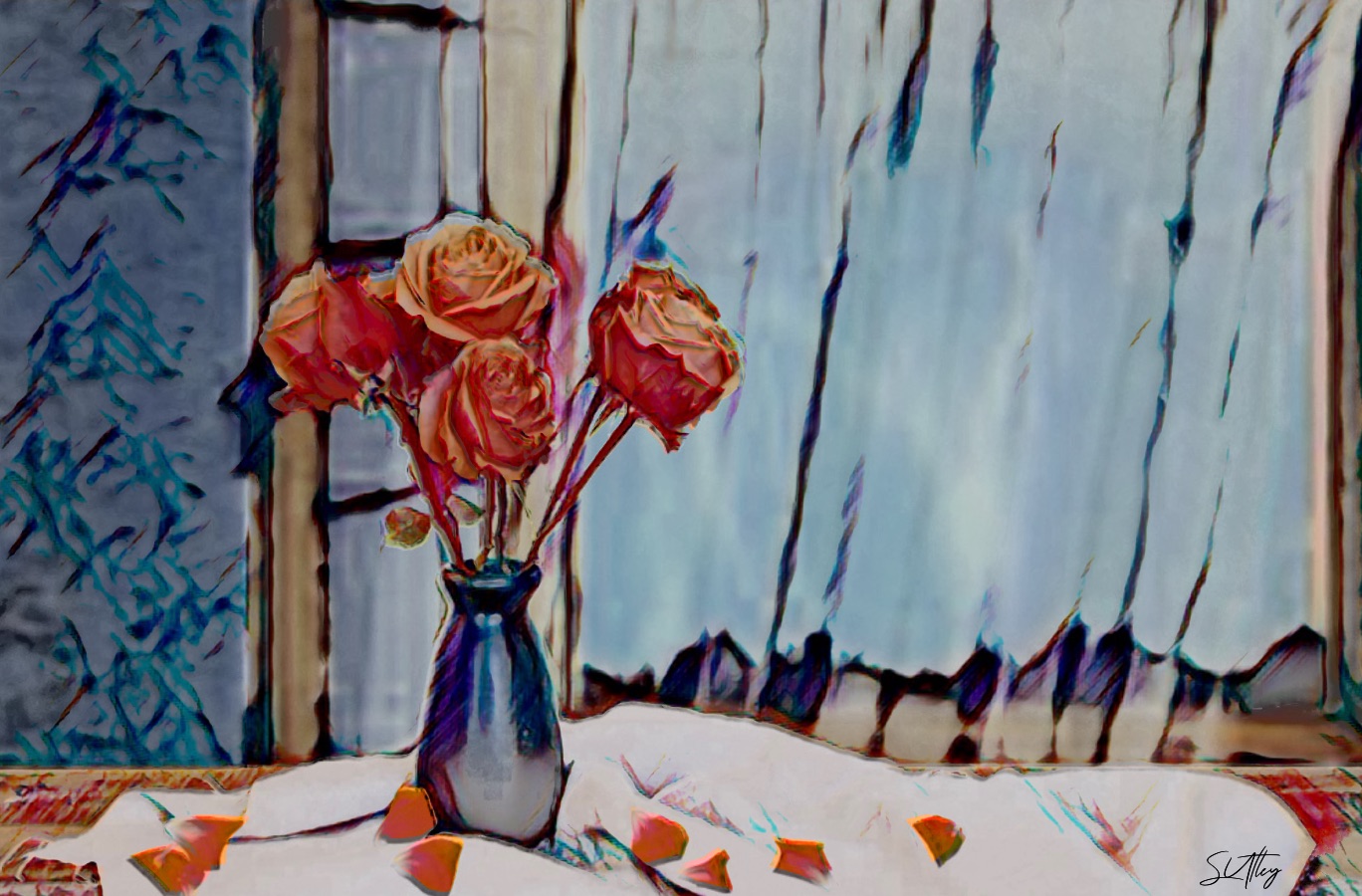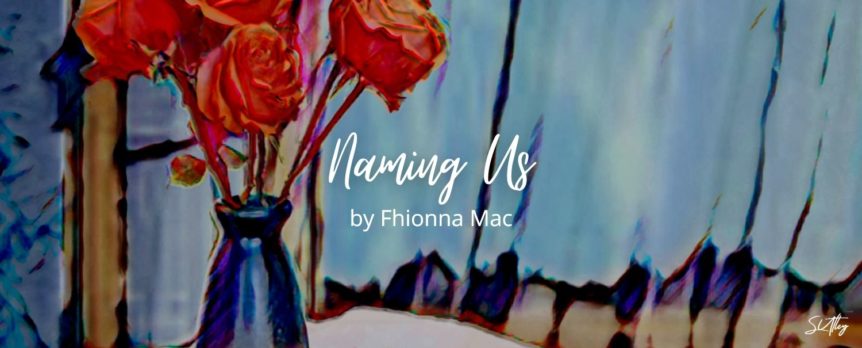Naming Us
by Fhionna Mac
Anima, my mother, experiences peculiar afflictions. She imagines things, and my aunt, my father, and my mother’s doctors believe it has ruined her mind. The doctors try to help with medication, but the pills gather in secret places, coated in dust, so they give up prescribing.
My mother says she’s always tolerated drugs poorly, “I try to tell them, but they don’t listen,” but I think it’s more a stubbornness to remain partially lucid. Her smile is weak, exhausted from the exertion of maintaining routine, but I admire her tenacity to do what suits her best—even if most people think she’s wrong.
Dusan, my father, says my mother has lost her ability to reason. He clicks his tongue when he talks about her. “Your mother has always been headstrong,” he says like it’s an affliction all on its own, but he’s never taken the time to appreciate her.
My father wasn’t around when I was a child. He hated my mother’s changing moods, so my aunt became his stand-in. The day my aunt moved in, she rolled her eyes and groaned, “I’ll need to raise you because your grandfather is too old,” and I knew I was a chore.
My grandfather visited as much as he could; I was always happy to see him. He smelled of Old Spice and tobacco. He knew what to say to keep my mother calm, and I wished he would stay and replace my aunt.
My mother often climbed the walls. I could see the claw marks she left behind in the plaster and pale floral paper, but I couldn’t see her. I thought she was playing hide-and-seek, so I looked for her. I found her in the greenhouse speaking to someone who wasn’t there.
One day I asked my aunt who my mother was talking to, and she sighed, “One of her many friends, no doubt,” and I remember feeling happy my mother had friends like I did that no one else could see.
My aunt can be a little cruel, but maybe it’s something inside that makes her feel that way. She says my head is still in the clouds, “It’s no wonder your father left you behind when you were little,” but I’m glad he did. It gave me the chance to love my mother with fewer interruptions. It gave me a chance to understand her as I grew.
My mother’s insight helps me to survive. On the days her mind lets her glimpse me, she says, “Never forget there are spirits in this world who need to talk. Listen to their wisdom,” and she’s right. There are paths I need to follow—breadcrumb trails of knowledge—to learn how to live in this world.
My father comes to visit me sometimes, but it’s not easy when he starts on with his usual moaning. He blames my grandfather for my mother’s behavior, saying, “Anima’s a liability. She should have been brought up stricter.”
My grandfather knows what my father thinks, and the mouthpiece of his pipe carries teeth marks deeper than they should be. He shakes his head, “No use fretting about what could have been, but your father is wrong. Your mother is smart. Smarter than the rest of us. Except for you, kiddo,” but he is clever, too.
My grandfather sees people for who they really are. He thinks my mother has the “Gift of sight,” but it makes people nervous about her. “There’s no harm in seeing things that others can’t. Special is a good way to be,” and he chuckles and rests his chin on his neck when he hugs me. “Your mother is misunderstood,” he says like he knows the very bones of her, and I think that I am too. I’m just like her, in many ways, and I wonder if my grandfather can tell.
I visit my mother all the time. She needs me more at night; she gets anxious when she closes her eyes to sleep, and she can’t see her friends. “Who will protect me when the darkness comes? How can they protect me if they can’t find me?” she whispers, but I tell her they will always find her, no matter where she goes. I close my eyes, try to follow her. Quite often, I find that I can. Our dreams mingle, and I guide her home.
It felt right to bring my mother home from the hospice—she’s been there too long. When I signed all the papers and gathered her up into my arms, she laughed, and her eyes sparkled. They were clear as crystals in the morning light, and I saw my mother young again. In that moment, I felt guilt for ever having left her and joy for welcoming her home. She is the best mother anyone, like me, could wish for.
My mother isn’t as scared anymore, but I know there are figures in the shadows; always spirits at her shoulder. I see them with her, sometimes. We have conversations in her rose-filled bedroom, fresh pink-gold petals spread like confetti on the linen-covered table by the window. She squints when she searches her room, her smile less of an effort than before. “I have trouble reading you all, at times,” she says, “but I can call you by your names, just the same.”


ABOUT THE AUTHOR
Fhionna Mac is a survivor of cancer, disabled, dyslexic, and loves nothing more than to scribble notes and ideas for stories wherever she goes. Her stories often focus on intense human relationships because she loves to make people feel
Share this Post


Comments
This is wonderful, very tender and sympathetic.